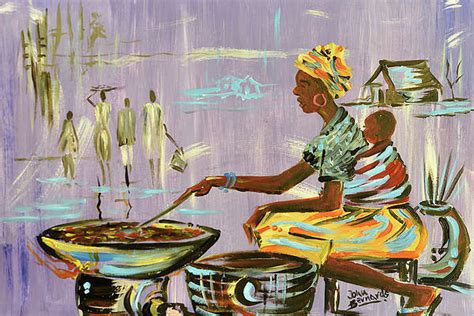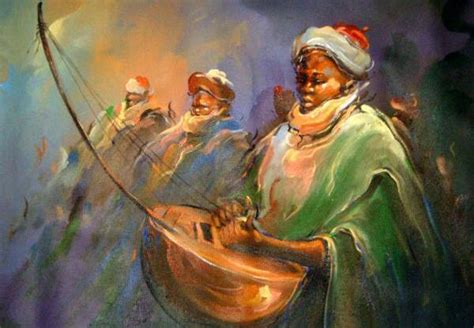
Nigeria, often referred to as the ‘Giant of Africa,’ is a country that embodies a rich tapestry of diverse cultures, traditions, languages, and art forms. With more than 250 ethnic groups and a population of over 200 million, Nigeria is a nation of colour and vibrancy, a melting pot of experiences that embody both its historic roots and contemporary influences. This article will traverse the vast Nigerian cultural landscape, delving into the nation’s traditional heritage and its evolving contemporary cultural expressions.
In the realm of traditional Nigerian culture, each ethnic group has its unique customs and ways of life. The three largest groups, the Hausa, Igbo, and Yoruba, offer a glimpse into this cultural diversity. In the North, the Hausa are known for their intricate architecture, skilful leatherwork, and the Durbar festival, a spectacular event that showcases ornately dressed horsemen, music, and dance. The Igbo in the East are renowned for their vibrant masquerades, like the Mmanwu, and their community-focused democratic leadership structure. In contrast, the Yoruba in the West are famed for their sophisticated Ifa divination system, their drumming traditions, and the elaborate Eyo and Osun-Osogbo festivals.
Nigeria’s diverse traditional art forms offer further testament to its rich culture. From the Nok terracottas, dated as far back as 1500 BC, to the intricate bronze castings of the Benin and Ife Kingdoms, Nigerian art is steeped in history. Even today, traditional arts like pottery, weaving, beadwork, and carving continue to thrive, often integrating modern materials and techniques with time-honored practices.
Yet, as much as Nigeria is rooted in its traditions, it is also a country rapidly shaping contemporary African culture. Nigerian music, film, fashion, and literature are gaining international recognition and reshaping global perceptions of African creativity.
Afrobeats, a fusion of traditional African music, hip-hop, highlife, and jazz, has become a global phenomenon, with Nigerian artists like Burna Boy, Wizkid, and Tiwa Savage headlining international music festivals and topping global music charts. These artists have not only showcased the versatility and richness of Nigerian music but have also played a role in bringing African music to the forefront of the global music scene.

The Nigerian film industry, popularly known as Nollywood, is another cultural powerhouse. Nollywood has emerged as one of the world’s largest film producers, known for its prolific output and uniquely Nigerian narratives. The industry’s growth has paved the way for international collaborations, with platforms like Netflix investing in and showcasing Nigerian movies.
In literature, Nigerian authors are putting the country on the global literary map. From the renowned works of Chinua Achebe and Wole Soyinka to contemporary authors like Chimamanda Ngozi Adichie and Teju Cole, Nigerian literature is receiving worldwide acclaim for its compelling storytelling and exploration of socio-political themes.
In fashion, Nigerian designers are making waves on international runways. Designers like Duro Olowu, known for his vibrant prints and eclectic designs, and Kenneth Ize, famed for his innovative use of traditional West African fabrics, are redefining global fashion norms and aesthetics.
In the grand tapestry of Nigerian culture, the threads of tradition and modernity intertwine to create a vibrant and dynamic cultural landscape. Through its rich traditional heritage and its innovative contemporary expressions, Nigeria continues to contribute to global culture in profound and enduring ways. It is a testament to the country’s indomitable spirit, its creative prowess, and its enduring cultural legacy.
Sources
- 1. “A Country of Diverse Cultures: Nigeria.” UNESCO. Retrieved from: https://en.unesco.org/courier/2020-3/country-diverse-cultures-nigeria
- 2. “The World of Afrobeats.” The Guardian. Retrieved from: https://www.theguardian.com/music/2023/06/07/the-world-of-afrobeats
- 3. “Nollywood: The Nigerian Film Industry.” BBC. Retrieved from: https://www.bbc.co.uk/programmes/articles/5G6r3xJ6r2H8k2cHJHS8BB/nollywood-the-nigerian-film-industry
- 4. “Nigeria’s Rising Fashion Stars.” Vogue. Retrieved from: https://www.vogue.co.uk/arts-and-lifestyle/article/nigeria-fashion-designers
- 5. “10 Nigerian Authors You Should Know.” Culture Trip. Retrieved from: https://theculturetrip.com/africa/nigeria/articles/10-nigerian-authors-you-should-know/
- 6. “Nigeria: The Magic of the Nigerian Culture.” AllAfrica. Retrieved from: https://allafrica.com/stories/202305080067.html
- 7. “Music, Film and Fashion: Exploring Nigeria’s Creative Scene.” CNN. Retrieved from: https://edition.cnn.com/2023/04/02/africa/nigeria-creative-scene-intl/index.html
- 8. “Traditional Nigerian Art and Culture.” National Museum of African Art. Retrieved from: https://africa.si.edu/exhibitions/current-exhibitions/visions-from-the-forests-the-art-of-liberia-and-sierra-leone/
- 9. “Nigeria – Languages and Culture.” Britannica. Retrieved from: https://www.britannica.com/place/Nigeria/Languages




